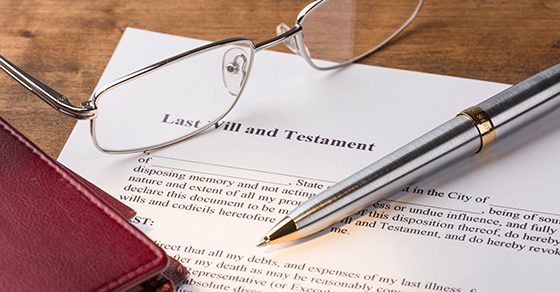 The novel coronavirus (COVID-19) pandemic has refocused people’s thoughts on the health and safety of their families. In addition to taking the necessary steps today to protect your loved ones, it’s equally important to consider their financial security in the future.
The novel coronavirus (COVID-19) pandemic has refocused people’s thoughts on the health and safety of their families. In addition to taking the necessary steps today to protect your loved ones, it’s equally important to consider their financial security in the future.
If you don’t have a will, drafting one should be your first step in developing a comprehensive estate plan. Because of stay-at-home orders in many states, it may be tempting to turn to online do-it-yourself (DIY) tools that promise to help you create a will (and other estate planning documents). Even though this may be a relatively cheap option, using these online tools is risky except in the simplest cases.
A will that isn’t executed properly under state law isn’t legally binding. Therefore, your assets may be divided according to state intestacy laws, regardless of your intentions. And, if you have young children, a court may appoint their legal guardian.
No “one-size-fits-all” solution
Despite what you might have read online, there’s no single prototype for wills. It’s complicated because the laws can vary widely from state to state. For instance, some states recognize oral wills, while others don’t. Or a state may require two or even three attesting witnesses.
One common mistake of DIY wills is leaving out important provisions that can lead to challenges in the future. Case in point: If the will doesn’t include a residuary clause addressing amounts that are “left over” after estate debts and tax payments have been settled, an unspecified party could walk away with a large sum of money. It might even be a family member you had wanted to “disinherit.”
Turn to a professional
The bottom line is that there is too much risk by taking shortcuts when it comes to drafting your will. Have your will drafted and executed by a reputable attorney. Questions? Contact us.



